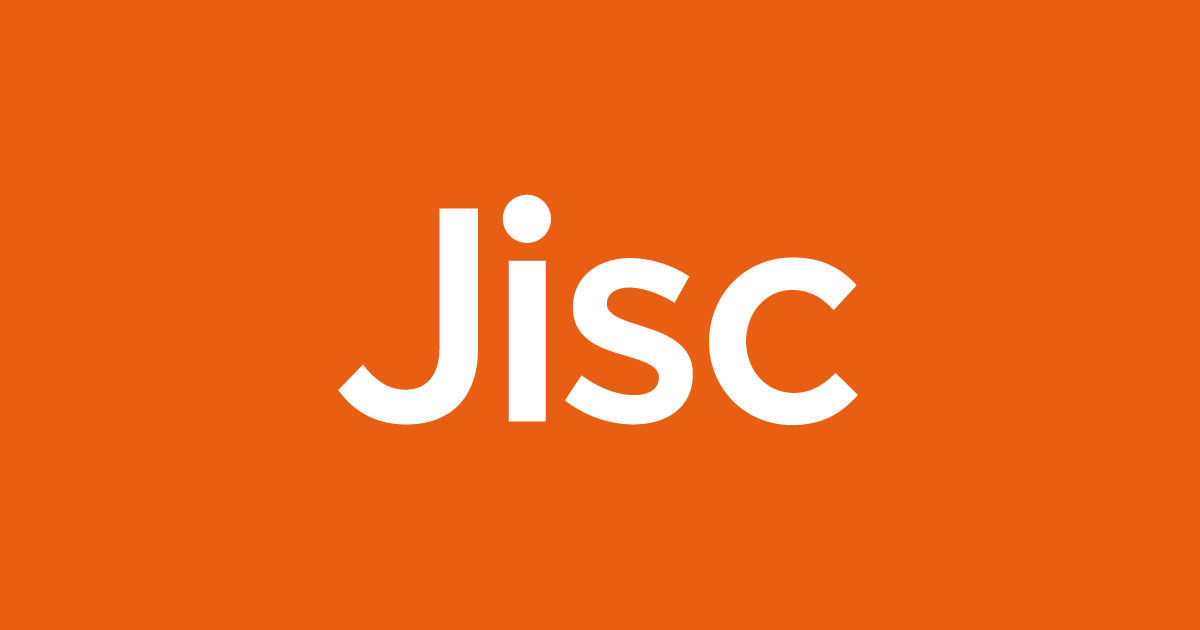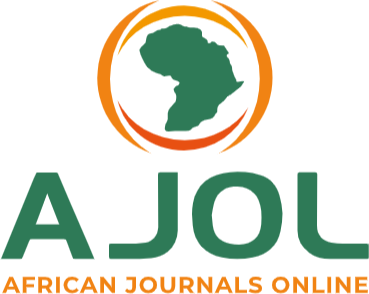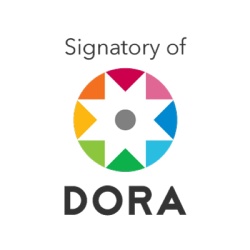The Impact of Athletic Brands on Arab Youth Perceptions of Israel: A Review of Sports Diplomacy in Social Science
Abstract
This research offers an Arab view point from the academic fieldwork on the nexus between sports diplomacy and social science. The research examines the impact of sports diplomacy through athletic brands on youth perceptions of Israel in the Arab region. 113 Arab students in four Egyptian and Palestinian Universities were surveyed, through mixed-methods research directed by thematic analysis to examine students’ perceptions of Israel based on the political stance of Arab athletes competing against Israeli athletes at sports mega events. Responses indicate that Arab athletes' conduct towards Israeli counterparts in the realm of sports diplomacy had a significant impact on students' perspectives, predominantly fostering unfavorable impressions of Israel. According to the research, there is a gap between youth opinions and the policies of the respective governments. The research concludes that sports boycott is effective in resisting occupation, and that sports and politics are indivisible as the animosity embedded in the Arab-Israeli conflict reflected on respondents’ preferences and emphasized collective national identity among students in the four universities, that linked competition with Israeli athletes to the perception of Israel as enemy. Therefore, the idea of sports normalization appears to be a myth.
Downloads
References
Allison, L. (2000). Sport and Nationalism. In: J. Coakley and E. Dunning, eds., Handbook of sports studies, London: SAGE Publications, 344-355.
Al-Monitor. (2021). Saudi judoka earns praise for facing Israeli opponent. July 30. https://www.al-monitor.com/originals/2021/07/saudi-judoka-earns-praise-facing-israeli-opponent-tokyo-olympics.
Arai, A., Jae, Y. and Ross, S. (2014). Branding athletes: Exploration and conceptualization of athlete brand image. Sport Management Review 17 (24), 97–106.
Bahrain News Agency. (2020). Areas of joint Bahraini-Israeli sports cooperation discussed. December 3. https://2u.pw/oQcb5QKu
Black, D. R. (1999). Not Cricket: The effects and effectiveness of the sport boycott. In: N.C. Crawford and A. Klotz, eds., How sanctions work, International Political Economy Series. London: Palgrave Macmillan, 213-231.
Dalloul. A. (2021). Olympic athletes represent the real Arab attitude towards Israel. Middle East Monitor, August 3. https://www.middleeastmonitor.com/20210803-olympic-athletes-represent-the-real-arab-attitude-towards-israel/.
Dart, J. (2017). Showing Israel the red card. International Journal of Sport Policy and Politics 9 (3), 521 – 539.
Darweish, M, and Rigby, A. (2018). The internationalization of nonviolent resistance: the case of the BDS campaign. Journal of Resistance Studies 4 (1), 45-71.
Galily, Y, and Shimon, P. (2013). Coexistence and sport: The Israeli case. Journal of Comparative Research in Anthropology and Sociology 4 (2), 181-194.
Hoberman, J. (2011). The myth of sport as a peace-promoting Political Force. SAIS Review of International Affairs 31 (1), 17-29.
Khalid, H. (2020). How sport could help cement peace accords in the Middle East. The Conversation. September 23. https://theconversation.com/bahrain-v-israel-how-sport-could-help-cement-peace-accords-in-the-middle-east-146621 .
Krasna, J. (2021). Understanding the wave of normalization in the MiddleEast. Foreign Policy Research Institute.https://www.fpri.org/article/2021/01/understanding-the-wave-of-normalization-in-the-middle-east/
Leitner, M., Galily, Y., and Shimon, P. (2012). The effects of Peres center for peace sports programs on the attitudes of Arab and Jewish Israeli youth. Leadership and Policy Quarterly 1 (2), 109-1021.
Lenskyj, H. (2014). Nationalism, boycotts and the Olympic industry, in Sexual Diversity and the Sochi 2014 Olympics: No More Rainbows, London: Palgrave, 61-98.
Loy, J., and Booth, D. (2000). Functionalism, sport and society. In: J. Coakley and E. Dunning, eds., Handbook of Sports Studies, London: SAGE Publications, 8-27.
MacLean, M. (2014). Revisiting (and Revising?) sports boycotts: From rugby against South Africa to soccer in Israel. The International Journal of the History of Sport 31(15), 1832-1851.
McLuhan, M. (1962). The Gutenberg Galaxy: The making of typographic man. University of Toronto Press.
Mickelsso, T., and Hansso, E. (2021). Exchange punches, not bullets: reconciliation through combat sports. Journal of Martial Arts Anthropology 21 (1), 47–55.
Murray, S., and Pigman, G.A. (2014). Mapping the relationship between international sport and diplomacy. Sport in Society 17 (9), 1098-1118.
Nauright, John. (1997). Sport, cultures, and identities in South Africa. London: Continuum International Publishing Group.
Panja, T. (2021). An Algerian judoka was suspended after withdrawing to avoid meeting an Israeli opponent. July 30. https://www.nytimes.com/2021/07/24/sports/olympics/an-algerian-judoka-was-suspended-after-withdrawing-to-avoid-meeting-an-israeli-opponent.html .
Piccolo, G. (2020). The effects of professional athletes as role models on high school students. Master thesis, SUNY Brockport, State University of New York. https://soar.suny.edu/handle/20.500.12648/3958 .
Reid, H. (2017). Athletes as heroes and role models: an ancient model. Sport, Ethics and Philosophy 11 (1), 40-51.
Ronkainen, N.J, Ryba, T.V., and Selanne H. (2019). She is where I’d want to be in my career : youth athletes’ role models and their implications for career and identity construction. Psychology of Sport and Exercise 45 (101562). https://doi.org/10.1016/j.psychsport.2019.101562 .
Rose, H., and Rose, S. (2002). Why we launched the boycott of Israeli institutions. The Guardian, July 15. http://www.guardian.co.uk/world/2002/jul/15/comment.stevenrose .
Sachkhabrain. (2021). Al-Qahtani loses to Israeli rival in Olympic. July 31. https://sachkhabrain.com/en/world/users-anger-over-saudi-arabia-after-al-qahtani-loses-to-israeli-rival/ .
Sawafta, A. (2018). Palestinians condemn UAE, Bahrain presence in cycle race in Israel. Reuters, May 7. https://www.reuters.com/article/us-cycling-giro-israel-idUSKBN1I81NW .
Shlaim, A. (2005). The rise and fall of the Oslo peace process. In: L. Fawcett, ed., International Relations of the Middle East, Oxford University Press,241-261.
Sorek, T. (2003). Arab football in Israel as an integrative enclave. Ethnic and Racial Studies 26 (3), 422-450.
Spiro, A. (2021). Israeli judoka Raz Hershko praises ‘brave’ Saudi opponent for fighting her. August 5. https://www.timesofisrael.com/israeli-judoka-raz-hershko-praises-brave-saudi-opponent-for-fighting-her/.
State Information Service. (2019). Egypt's taekwondo player Seif Eissa wins gold in Luxembourg Open 2019. June 16. https://www.sis.gov.eg/Story/140300/Egypt's-taekwondo-player-Seif-Eissa-wins-gold-in-Luxembourg-Open-2019?lang=en-us .
Stein, K, W. (1997). Continuity and change in Egyptian-Israeli relations, 1973-97. Israel Affairs. 3 (3-4), 296-320.
Stevenson, C. (1976). An alternative theoretical approach to sport socialization. International Review of Sport Sociology 11 (1), 65–76.
Taniyev, O., and Gordon, B. (2022). Lead by example: An exploration of the athlete brand as a role model. Sport Marketing Quarterly 31 (1), 62-75.
The New Arab. (2019). Kuwaiti grappler refuses to fight Israeli. January 28. https://www.newarab.com/news/kuwaiti-grappler-refuses-fight-israeli-us-competition .
The New Arab. (2022). Saudi Arabia accused of using sports to normalise Israel relations by stealth. November 2. https://www.newarab.com/news/saudis-accused-using-sports-normalise-israel-ties.
Times of Israel. (2020). Israeli cycling team to compete in UAE race. February 22. https://www.timesofisrael.com/in-first-israeli-cycling-team-to-compete-in-uae-race/

This work is licensed under a Creative Commons Attribution-NonCommercial 4.0 International License.





















